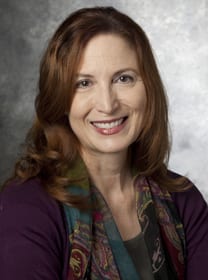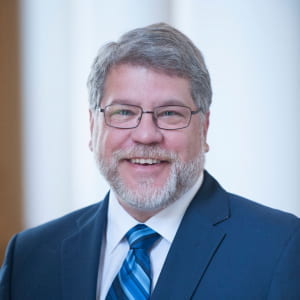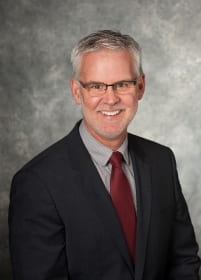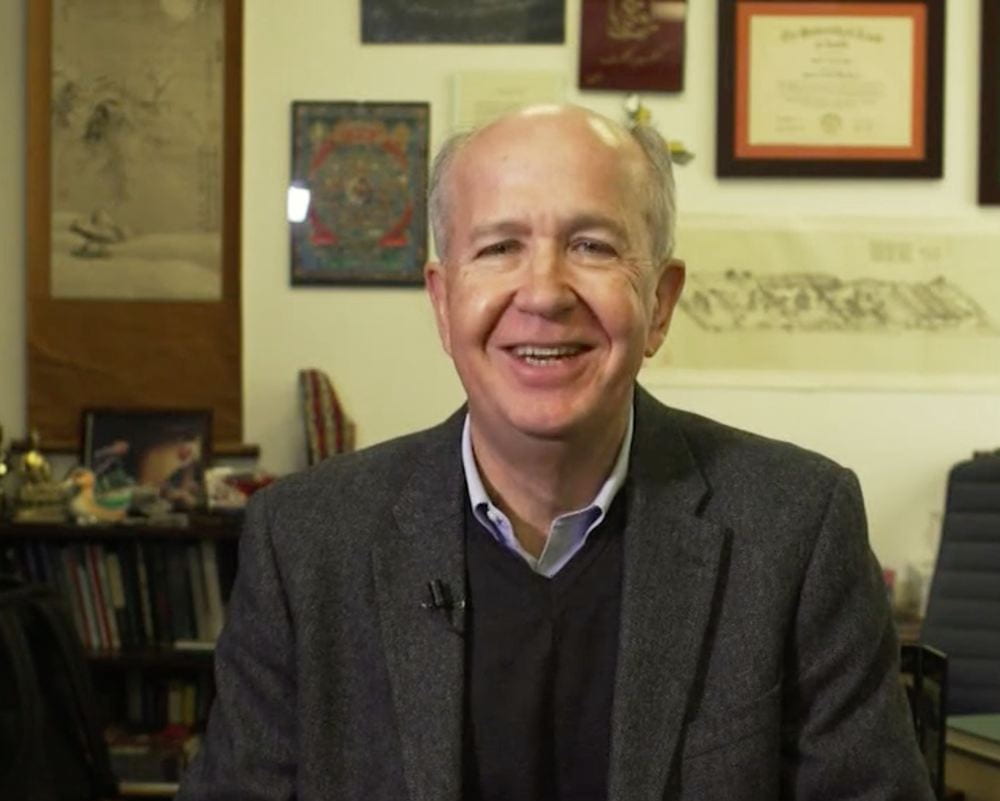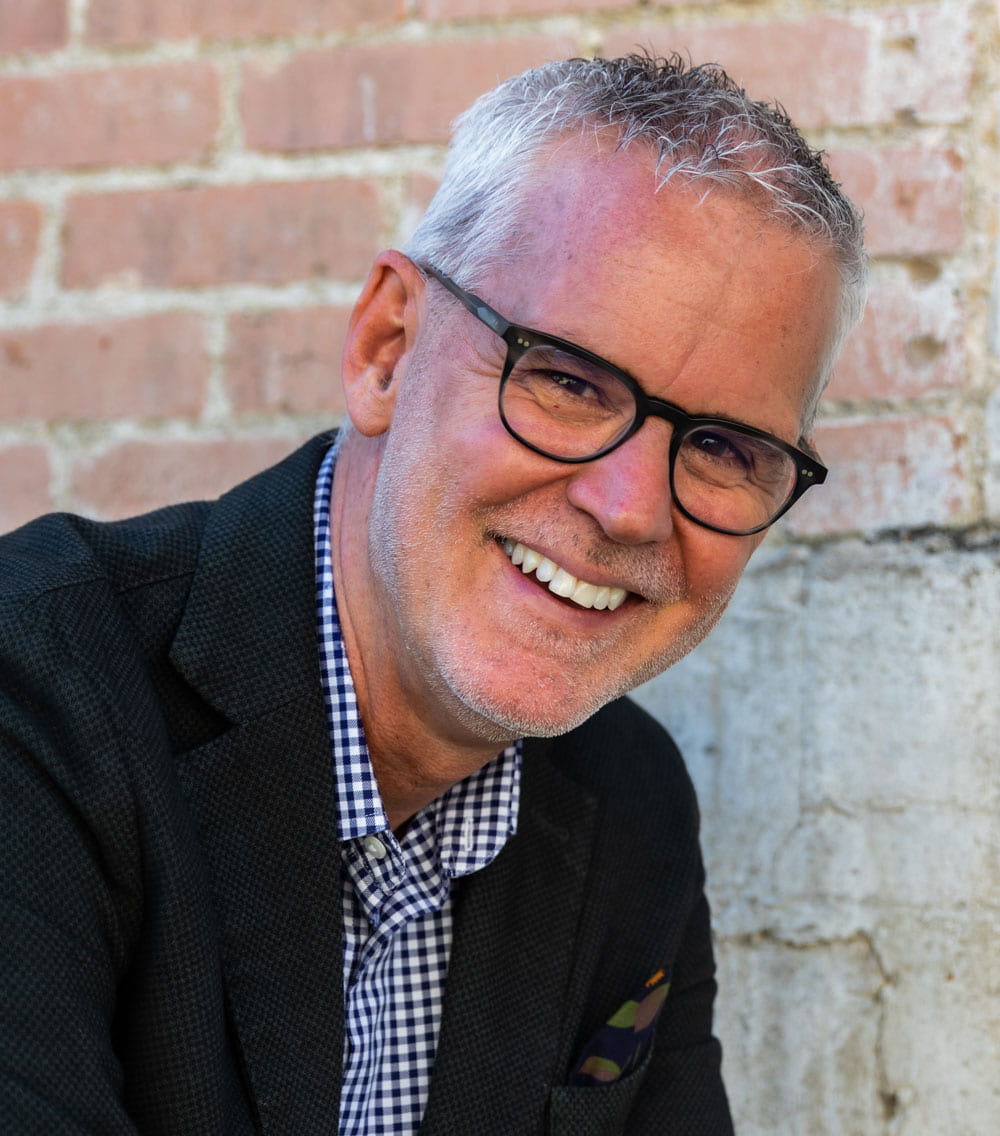For the past two years, much of Wes Allen’s attention has been focused on a less-than-glamorous but important project: accreditation. He led the self-study team for Perkins’ accreditation through the Association of Theology Schools.
“It’s a process of bringing together all the groups related to the seminary to investigate and evaluate how we are doing in relation to the standards,” he said.
The process culminated in February with a visit to the Perkins campus by the ATS site committee members. While official word won’t come until the accreditation committee meets in June, he said, “The process on our end is complete, and we are pleased with the feedback we have received thus far.”
Back to Work
Now that that’s over, Allen’s full attention returns to one of his primary research interests, preaching and the Synoptic Gospels, and in particular, a commentary on the Gospel of Mark that he’s working on.
“I’m focused on a literary reading of Mark,” he said. “The commentary will take an overarching view of Mark and how you can preach on individual passages from that kind of reading.
“Imagine reading A Tale of Two Cities, with all of its use of symbolism, foreshadowing and other literary devices throughout the book,” he said. “Now imagine you preach a sermon on just one scene of the book. How do you do justice to the whole narrative while focusing on the specifics of the narrower scene?”
Allen also views Mark as a parable that twists the story of Jesus known to the original readers in order to offer them a new understanding of Jesus and discipleship. The twist is especially evident in how the gospel ends. Like the other gospels, Mark has an empty tomb story, but the women go away and tell no one about the resurrected Jesus. Assuming the original readers already knew some version of the resurrection story, Mark’s ending would challenge them to reconsider the content of their faith in Jesus and their model of discipleship.
Teaching Preachers
Allen also teams up with Alyce McKenzie and Perkins’ Center for Preaching Excellence to help pastors refine and improve their preaching skills. He runs peer groups and helps lead one-day workshops called The Preacher’s Toolbox.
“These are for preachers who are not seminary trained but are faithfully trying to serve the church,” he said. “They’ve had very little introduction to homiletical, critical or exegetical thought. We thought about what resources we could offer, what basic skills would help them better structure a sermon, and condensed that into The Preacher’s Toolbox.”
The typical participant is a pastor in a small rural church without an extensive academic background or access to a theology library. Many of the participants are bivocational, juggling sermon preparation and study with a second job, family and personal life, and other pastoral duties.
“We teach the same things we’d teach across a semester in an Introduction to Preaching course but we boil it down to the basic elements,” he said.
Teaching Specialties
Introduction to preaching, preaching the New Testament; exegesis for preaching; preaching in postmodernism; preaching through the liturgical year; theology in preaching; prophetic preaching; preaching in the context of worship
Research Interests
Preaching in postmodernity; conversational homiletics; cumulative approaches to preaching; preaching and the Synoptic Gospels; preaching and the human condition
Family
His wife, Bonnie Cook, is executive director of the Mental Health Association of Greater Dallas; daughter Maggie Cook-Allen will graduate from SMU in May with majors in political science and philosophy.
Pets
Two dogs, both rescues – Phoebe and Lydia (named after “Lydia the Tattooed Lady,” a song sung by Groucho Marx)
Books on His Nightstand
At the invitation of Perkins faculty member Evelyn Parker, Allen will participate in a panel discussion on practical theology and bioethics later this year, so he’s reading introductory works in bioethics lately – and getting some input from his daughter on the subject.
Fantasy Dinner Party
“I went through my theological education when we learned about Karl Barth, Paul Tillich and Rudolf Bultmann, who were incredibly influential,” he said. “Since then my thinking and faith have also been shaped by feminist and liberation theologians, like Rosemary Radford Ruether, James Cone, Delores Williams, Gustavo Gutiérrez and Sallie McFague. I’d love to get the two generations together and watch that conversation.”
Hobbies
Allen plays disc golf at the parks in Dallas. It’s a combination of golf and Frisbee – players follow a golf course and aim to land flying discs in baskets along the way.
Signature Dish
Barbecued pulled pork. “I grew up in the southeast,” Allen said. “In Alabama, BBQ is not brisket. BBQ has to come from a pig. My mission is to get people in Texas to appreciate pulled pork.”
Question He’d Ask at the Pearly Gates
“I’d just ask, ‘Why?’ Whoever answers – God or St. Peter – gets to pick how to interpret and answer that question.”
Spiritual Practice
Research and writing. Citing a rabbinical saying, ‘An hour of study is an hour of prayer in the eyes of God,’ Allen says research and writing are his central spiritual disciplines. “I’m really fed by reading other scholars and being in a room alone asking a question and figuring out how I want to answer that question for a public audience,” he said.

